| Srl | Item |
| 1 |
ID:
155116
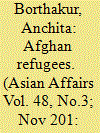

|
|
|
|
|
| Summary/Abstract |
One of the most important arenas that have been profoundly affected by the security situation in Afghanistan is Pakistan's internal security environment. The instability in Afghanistan has had a negative spill-over effect on Pakistan's domestic security scenario, as the Afghan quagmire poses immense implications on Pakistan's domestic framework. One of the important consequences of the Afghan conflict since the 1970s has been the massive inflow of the Afghan refugee population to the neighbouring Pakistan which in following years has brought about a number of demographic and security challenges to the Pakistani society. Therefore along with a number of factors, at this present juncture, Afghan refugees have also become a principal factor in determining Pakistan's Afghanistan policy.
|
|
|
|
|
|
|
|
|
|
|
|
|
|
|
|
| 2 |
ID:
153010
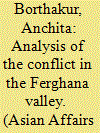

|
|
|
|
|
| Summary/Abstract |
The Ferghana valley which is an ethnically and culturally complex region divided among three Central Asian Republics of Kyrgyzstan, Tajikistan and Uzbekistan, witnessed a number of problems ranging from inter- ethnic tensions to border incursions; from security related complications to a number of socio- economic difficulties in the recent years. Moreover, it is also the most densely populated areas in Central Asia. Though sometimes the threat of religious extremism and intolerance in the Ferghana valley has been exaggerated yet it is difficult to completely deny their presence in the region and the obvious threat it has been posing for the entire Central Asia in future. The artificial delineation of border in the Ferghana valley which was finalized during the soviet era can be considered as one of the principle reasons behind the occurrences of various conflicts in the valley especially after the disintegration of the Soviet Union. Similarly, economy also plays a pivotal role in accentuating the conflict in the region as it is found that the root cause of majority of the conflicts prevalent in the region are regarding the domination of a particular ethnic group on the economic resources of that very area. However, the rivalry between the elites of the three republics and their struggle for power also play a prominent role in the disturbances that has been taking place in Ferghana valley as the elites of the valley do not want to lose their predominant position in the newly formed political establishments of their respective republics.
|
|
|
|
|
|
|
|
|
|
|
|
|
|
|
|
| 3 |
ID:
182832
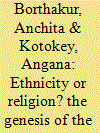

|
|
|
|
|
| Summary/Abstract |
Since the emergence of the Taliban in the national scene of Afghanistan, speculations have abounded around whether to call the movement a Pashtun nationalist movement or should it be termed as a radical Islamic movement having supra ethnic tendencies? It can be viewed that the Taliban movement in Afghanistan neither has its origin directly in the Pashtun tribal culture nor in the tradition of Islam. The leaders of the movement tend to use both these identities voluntarily based on circumstances. Depending on the aims and objectives in a given situation, both these identities are instrumentalized by the Taliban leaders to recruit more fighters and also to carry on with the political aspect of strategic decision making. Moreover, in the post 2001 scenario Afghan Taliban's principal ambition is to fight for national liberation against the presence of foreign forces and their local allies in Afghanistan under the banner of ‘divinely decreed Jihad’.
|
|
|
|
|
|
|
|
|
|
|
|
|
|
|
|
| 4 |
ID:
166832
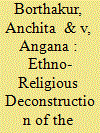

|
|
|
|
|
| Summary/Abstract |
The Afghan conflict, which formally started with the Soviet invasion of Afghanistan in late 1979, led to resistance movements throughout the country. The Mujahedeen resistance movement which began as a collective struggle against an infidel foreign power soon changed its course by promoting internal fighting’s within the groups based on ethno-religious lines. The politics behind the Afghan resistance was played by using both ethnic and religious cards, resulted into internal splits within the resistance. The ideological differences in relation to Islam among the warring factions of the movement had further complicated the situation. This paper will be an attempt to highlight the ethno-religious deconstruction of the Mujahedeen resistance movement in Afghanistan and its implication on its neighborhood. The role of foreign powers with their respective interests in supporting the Mujahedeen groups will also be analyzed in this paper.
|
|
|
|
|
|
|
|
|
|
|
|
|
|
|
|
| 5 |
ID:
175997
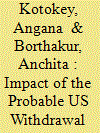

|
|
|
|
|
| Summary/Abstract |
Afghanistan’s age old relationship with the newly declared union territory of Kashmir is mostly seen through the prism of dispute between Islamabad and New Delhi since several decades. Among courses of events between Afghanistan and Kashmir, the Soviet withdrawal from the former in 1989 brought remarkable changes not only in Afghanistan but the spill-over effects of withdrawal were also felt in the Kashmir valley.
|
|
|
|
|
|
|
|
|
|
|
|
|
|
|
|
| 6 |
ID:
173554
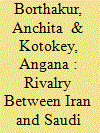

|
|
|
|
|
| Summary/Abstract |
Afghanistan remains a battleground for geopolitical rivalries among actors from both within the region and beyond. The country has been a victim of proxy wars between both regional and extra-regional players since the time of the Cold war.
|
|
|
|
|
|
|
|
|
|
|
|
|
|
|
|